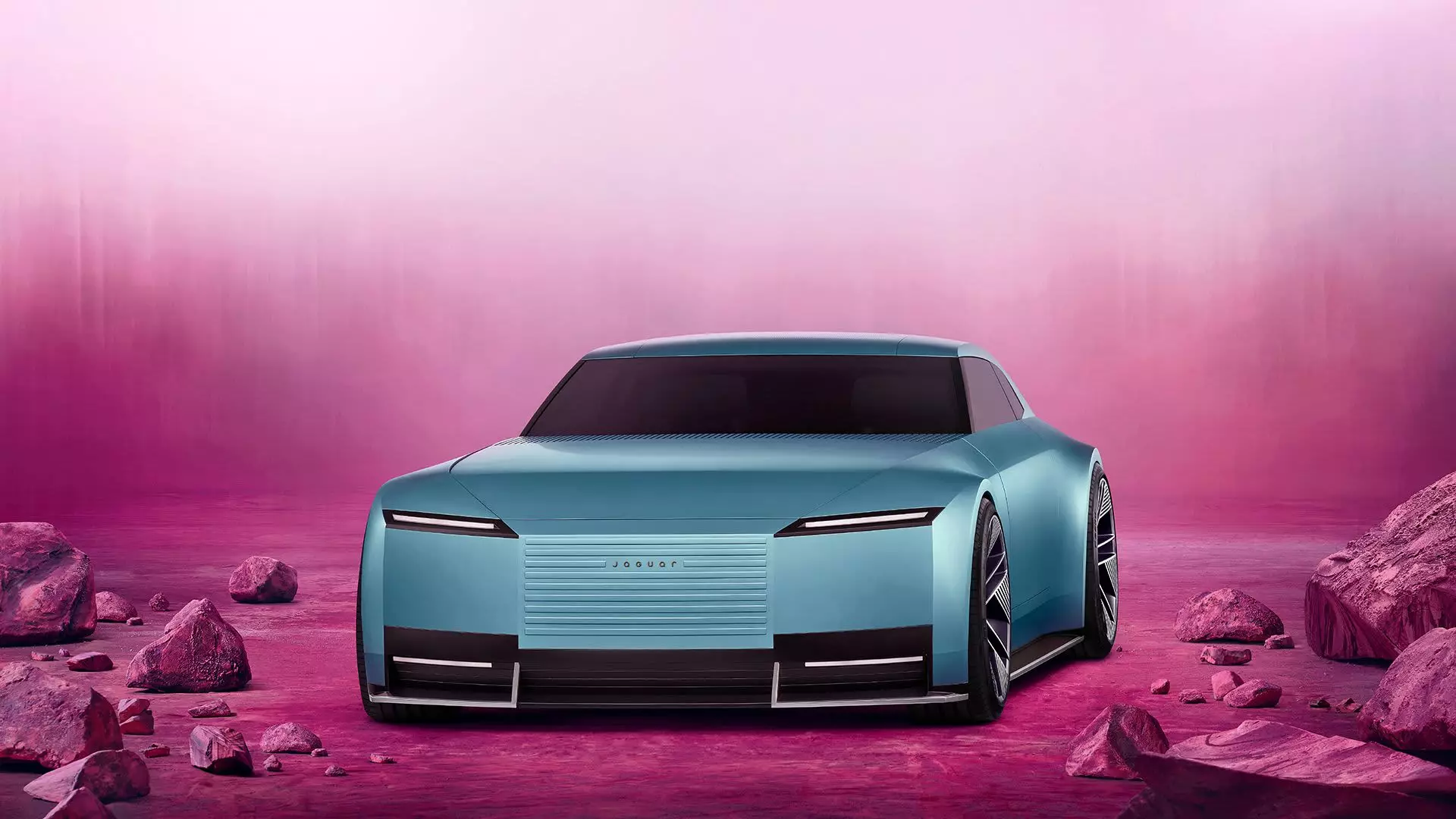Jaguar, the iconic British car manufacturer known for its luxury vehicles and racing heritage, has taken a significant step into the future of automotive design with its unveiling of the all-electric concept car, dubbed “Type 00.” This introduction signals Jaguar’s intent to pivot towards sustainability while maintaining its distinctive brand identity. The Type 00, pronounced “Type Zero Zero,” marks a departure from Jaguar’s traditional sporty aesthetics, leaning into a more futuristically minimalistic yet conspicuously striking design. This decision not only reflects a changing automotive landscape but also highlights the company’s ambition to redefine itself in an era dominated by electric vehicles (EVs).
The concept car presents a boxy silhouette, accentuated by bold, sleek lighting and oversized wheels, which starkly contrasts with the streamlined aerodynamic forms typically associated with the brand’s previous offerings. This radical redesign can be interpreted not merely as a stylistic shift but also as a strategic move meant to resonate with a new generation of eco-conscious consumers who prioritize innovation and sustainability over heritage.
Concept vehicles like the Type 00 are crucial tools in gauging public reception before committing to full-scale production. They serve as litmus tests for customer interest and can often dictate the direction of future production vehicles. While the Type 00 may not see a showroom floor, its design elements are likely to influence the next series of Jaguar’s electric models, including a highly anticipated four-door gran turismo (GT) expected to be unveiled in the following year. This model is rumored to closely resemble the concept, thereby embedding the new design ethos deeper into Jaguar’s future lineup.
Moreover, the eventual production version of Jaguar’s EV is projected to deliver impressive performance metrics, aiming for a range of up to 430 miles on a single charge. The introduction of rapid charging capabilities, with the potential to achieve 200 miles in just 15 minutes, positions Jaguar as a competitive player in the evolving EV market.
This ambitious design overhaul comes on the heels of Jaguar’s rebranding initiative, encapsulated in the provocative “Copy Nothing” campaign. An artistically bold advertisement featured diverse models showcasing vibrant fashion against a colorful backdrop, intending to communicate a fresh brand narrative. However, this rebranding effort did not go without criticism. Many loyalists took to social media to express their discontent, primarily focusing on the decision to phase out the iconic Jaguar mascot, which has become synonymous with the company since the 1950s. The backlash reflects a wider concern about whether the brand is veering too far from its historical roots in a bid to appear more contemporary.
Jaguar’s defense against this criticism emphasized that the rebranding is a necessary and imaginative transition aimed at establishing a dynamic new identity. As the automobile industry grapples with transformative changes, aligning the brand with current cultural movements could prove advantageous in appealing to a broader audience.
Navigating the Shifting Landscape of Automotive Manufacturing
Jaguar’s transition to an electric-only lineup by 2026 signifies a significant shift in strategy, mirroring broader trends within the automotive industry. With numerous competitors also announcing plans for exclusive EV sales, Jaguar’s proactive approach could either position the brand as a leader in sustainability or pose challenges if the anticipated adoption rates falter. The pressure weighs on manufacturers to adapt quickly to changing consumer preferences and regulatory frameworks, creating a complex environment for legacy carmakers like Jaguar, known for their gasoline-powered luxury vehicles.
As Jaguar managing director Rawdon Glover articulated in recent discussions, the brand acknowledges the need to reposition itself at a different price point while shedding traditional automotive stereotypes. This underscores a commitment to innovation and resilience, affirming that Jaguar is determined not just to survive but to thrive in the competitive landscape of electric mobility.
As Jaguar embarks on this daring journey defined by the Type 00 concept, the potential it has to reshape its legacy while embracing the demands of the modern automotive marketplace remains to be seen.

